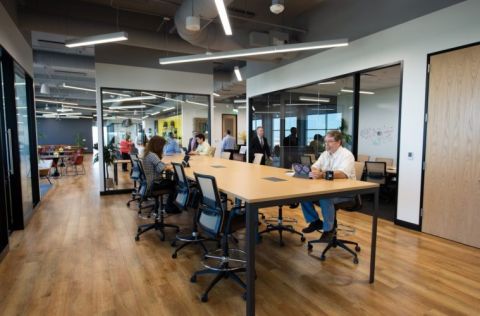Institutional Funding for CoWorking Companies in India: Report by ANAROCK
Coworking spaces are fundamentally capital-intensive and revolve around multiple variables such as design, technology, and customer service. For a business that thrives on economies of scale, the backing of institutional capital can be the crucial differentiator. Institutional funding to the coworking space has gradually evolved and grown. While in 2017, most of the deals were driven by angel investors and only a few PE players, 2018 saw the maximum deals driven by large PE players and venture capitalists. This trend continued in 2019, which witnessed strong investor confidence in India’s co-working story with three major deals being inked:
PE firm ChrysCapital invested USD 30 million in leading player Awfis.
SmartOwner, a real estate investment fund has put in USD 4.28 mn in Workspace.
BlackRock & CLSA Capital Partner have invested USD 53 million in GoWork.
PE funds and institutional investors will continue to back bigger players in 2020, allowing them to scale up, expand and offer a standardised experience to customers at more economical prices.
More Consolidation Imminent
Coworking spaces come in all sizes and variants (even a basement office with about a dozen seats technically qualifies as a coworking space) but not every coworking business is profitable. The success of the business model hinges on the operator’s capacity to scale up, and not every company may have the financial bandwidth or resources to do that. Survival in such a competitive environment will be a challenge for smaller players, and we will see more mergers and acquisitions in 2020.
The consolidation wave had already begun in 2018, with major acquisitions like One Co.Work acquiring IShareSpace and AltF CoWorking acquiring Noida-based Daftar India. The trend continued in 2019 with Oyo taking over Innov8 for INR 220 Cr. In 2020, we will see smaller or city-specific operators merge with national players looking to enter or establish themselves in tier 2 & 3 markets.
Challenges and Opportunities in 2020
There’s no doubt that coworking creates an inventive and stimulating work environment, but it also comes with certain risks and conditions. Such a shared format may not be suitable for companies dealing with high volumes of confidential data. It is up to operators to take steps to minimise such risks and scale up cyber security within shared working spaces. The shared work culture also translates into loss of privacy - a major concern for several companies.
To truly realise their potential and grow at a fast clip, coworking players must innovate and re-strategize their business models. The current lease-based structure does not offer much flexibility and cost efficiency. 2020 is likely to see the rise of ownership model developed in partnership with landowners, developers or the space providers. This arrangement will create built-to-suit spaces that are customised as per the tenant’s needs.
There’s no doubt about the scope of coworking sector and its potential for growth in India, but it will take a few more years for co-working to become India’s most-preferred work ecosystem.
